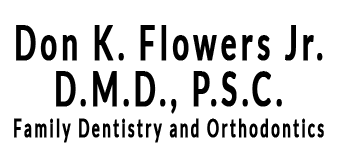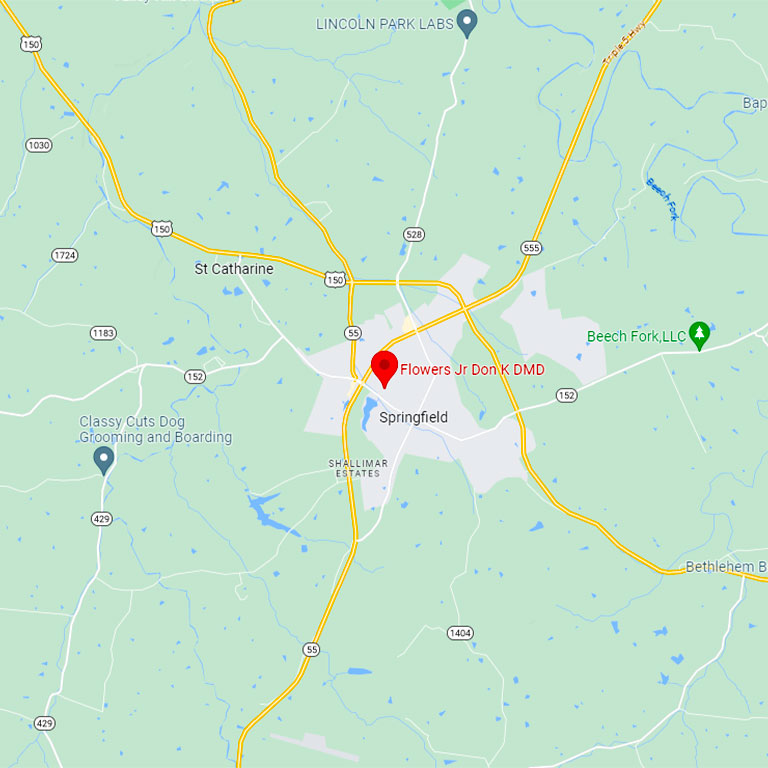Sleep Apnea
Sleep apnea is a medical condition that occurs when the airway becomes blocked, and a person stops breathing for a short period of time during sleep. This blocking of the airway causes intense snoring and gasping during sleep. With sleep apnea, your body actually wakes up multiple times while you’re sleeping, even though you’re not aware of it, and this leads to a host of health problems. In addition to a lack of restful sleep, your vital organs may not get enough oxygen while you sleep, which, if this continues, can cause serious, even fatal, health effects. Thankfully, treatment is available with a trip to Don K. Flowers Jr. DMD.
Causes of Sleep Apnea
Typically, sleep apnea occurs when the tongue or soft palate falls back and closes the airway during sleep. Sometimes, obesity is a cause of this, but it can also happen to people simply as they age and the muscles and ligaments in this region weaken. Anatomy can also play a role, as people with smaller jaws may be more prone to this condition than others.
Diagnosing Sleep Apnea
Sleep apnea is typically diagnosed with a sleep study. However, many patients will seek a diagnosis when they find themselves waking up feeling tired or if their partners complain about their excessive snoring.
How Dentists Treat Sleep Apnea – Oral Appliances
If you’ve been diagnosed with sleep apnea, Don K. Flowers Jr. DMD can help. We offer treatment through oral appliances that hold the airway open and prevent obstruction while you sleep. For many patients, a simple oral appliance can reduce their sleep apnea episodes enough to stop the risk and allow them to get enough air while they sleep.
Our practice offers two types of oral appliances for sleep apnea patients, and the right one for you will depend on the way your anatomy impacts your condition. The dental team at Don K. Flowers Jr. DMD will evaluate your mouth and sleep habits to determine which one will help the most.
Tongue-Stabilizing Devices
Sometimes, the main reason someone develops sleep apnea is due to the position of the tongue. If it falls backward during sleep, a tongue-stabilizing device works best. This device uses a small amount of suction to keep the tongue in the proper position while you sleep. Part of the device stays outside of the mouth, so it doesn’t require strong teeth to hold in place.
Mandibular Advancement Device
A mandibular advancement device sits inside the mouth, pulling the lower jaw forward. This pulls the tongue forward naturally, opening up the airflow. This device is the most common and works well for most patients.
Mandibular advancement devices fit over the teeth and use a series of screws, hinges, and rubber bands to connect the top appliance to the bottom one, or they may use arches to pull the jaw forward. These work best when customized to each individual patient’s mouth because they can accurately position the lower jaw and tongue based on the individual’s anatomy.
What to Expect When Getting Fitted for an Oral Appliance for Sleep Apnea Treatment?
If you have had a sleep study and found that you have sleep apnea, you can call your dentist in Springfield, KY, to schedule an appointment. At that appointment, our team at Don K. Flowers Jr. DMD will take impressions of your teeth or use our 3D scanning technology to create a 3D model of your mouth. We will then send that imaging or impression to the appliance manufacturer to have a custom device created.
Once the device is ready, you’ll return to our office for a fitting. Your dentist will make sure it fits properly and position the mouth as it should. We will also provide instructions for care.
Sometimes, a follow-up sleep study is scheduled to help determine if the device is working.
Remember that it does take time to adjust to an oral appliance. Give yourself at least a month to get used to wearing it. If you experience severe pain, then there is probably a problem with the fit and you need to be seen again for an adjustment, but a small amount of discomfort may just be part of that adjustment period. During this adjustment period, you may notice that you salivate more while you sleep or struggle with a dry mouth. You may find that this changes with time.
Who Is a Good Candidate for Oral Appliances to Treat Sleep Apnea?
Many patients can benefit from the convenience of oral appliances to treat their sleep apnea, but some patients need CPAP, or continuous positive airway pressure, instead of an appliance. Oral appliance therapy is not effective if a patient has severe sleep apnea concerns. However, for those with mild to moderate concerns who will willingly and consistently use the appliance, it can work quite well, improving their symptoms and lowering their risk of complications.
That said, certain categories of people should not use oral appliances for sleep apnea treatment. These are:
- People with central sleep apnea: This type of sleep apnea isn’t due to an obstruction but rather due to neurologic signaling problems, and an oral appliance cannot help.
- People with severe sleep apnea: Severe sleep apnea can be fatal and requires more aggressive treatment with CPAP.
- Children: Children need a different type and style of treatment. An oral appliance might work, but the appliance will be different than one used for adults due to their smaller anatomy.
Benefits of Using an Oral Appliance for Sleep Apnea Treatment
If you are visiting your dentist in Springfield, KY, for sleep apnea treatment, there are several benefits you might enjoy. The most obvious is a reduction in sleep apnea episodes and the sleepiness they cause. You may also find that the device lessens your snoring. It’s also easier to travel with than a CPAP.
Can I Use an Over-the-Counter Device to Treat Sleep Apnea?
While there are over-the-counter devices that state they will treat sleep apnea, your best treatment option is to use a custom-fit device, which will cause fewer problems with irritation and be more effective in your mouth.
If you’re struggling with sleep apnea and wonder if oral appliances are right for you, reach out to the dental team at Don K. Flowers Jr. DMD to discuss oral appliances.


